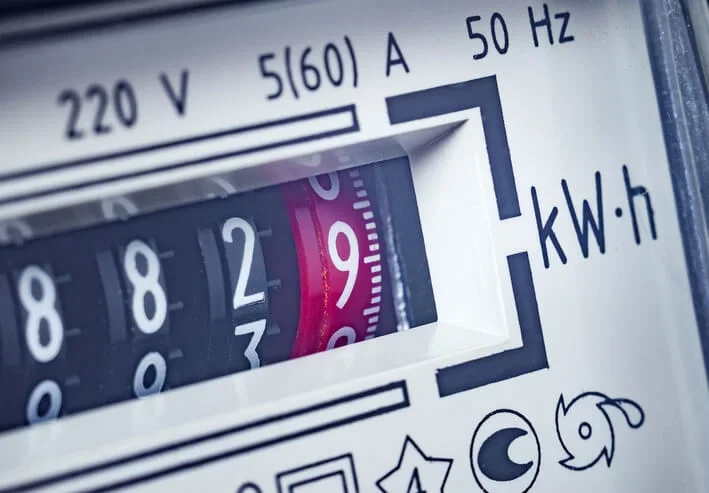What is energy theft, and how can you prevent it for your small business?
Energy theft might not sound like something you need to worry about, but it’s a surprisingly common issue, and it can spell real trouble for small businesses.
Whether it’s tampered meters, bypassed connections, or dodgy wiring setups left behind by a previous tenant, stolen energy can put your finances, safety and reputation at risk.
In this Bionic guide, we’ll take a closer look at what energy theft actually means, how to spot the signs, and what you can do to prevent it. Because when it comes to keeping your business safe and your energy bills honest, it pays to be in the know.

What is energy theft?
Energy theft is exactly what it sounds like: using gas or electricity without paying for it. That might involve someone tampering with a meter under-record usage, bypassing the meter entirely, or making an illegal connection to the supply.
In energy industry speak, this is classed as meter interference or abstraction of electricity, and is a criminal offence under the Theft Act 1968 and Electricity Act 1989.
If your business inherits dodgy wiring or a tampered meter when you take over a new site, you could end up paying the price, even if you have nothing to do with it.
Is energy theft a crime in the UK?
Yes, and it’s treated as such. Energy theft is illegal under the Theft Act 1968 and the Electricity Act 1989. Whether it’s done intentionally or not, the law takes a firm stance on this issue.
How common is energy theft in the UK?
Energy theft costs the UK up to £1.4 billion a year — that’s a massive chunk of money, and it’s not just energy suppliers who feel the impact. These costs often get passed on to bill-payers, with bills estimated to increase by around £50 per year.
Although energy theft is usually more common among domestic energy users, small businesses aren’t immune. In fact, premises with high energy use, shared spaces, or unclear meter arrangements can be prime targets. If you’re operating from a unit that’s been split up and re-let over the years, or you’ve taken over a previously vacant site, it’s worth checking everything’s in order.
What type of energy can be stolen?
There are two main types of energy theft in the UK:
Gas theft
Gas theft usually means tampering with the meter or regulator to slow down readings or bypass the meter completely.
The risk here goes way beyond the financial. Damaged or altered gas supplies can leak, and even small leaks can lead to fires or explosions if left undetected. If your gas supply has been interfered with, you may also be unknowingly exposed to carbon monoxide.
Electricity theft
Electricity theft is a bit more common, often because of how easy it can be to manipulate the wiring. This might involve bypassing the meter or using magnets to stop it from recording usage. Not only is this illegal, it’s dangerous. Unauthorised wiring can overload circuits, damage equipment, and create serious fire hazards.
What are the risks of energy tampering?
Tampering with your gas and electricity supply — whether inherited or not — isn’t just dodgy; it can cause serious harm. But what can energy theft really mean for your business?
- Safety issues — Illegal wiring or pipework can create shock risks, gas leaks, or even explosions.
- Unexpected downtime — If your supply is damaged or your premises become unsafe, you could be forced to close until the problem is resolved.
- Hefty fines and back payments — If your business is found to be benefitting from stolen energy, even if it’s unintentional, you could be faced with backdated bills, financial penalties, and potential prosecution.
- Insurance trouble — If something goes wrong and your insurer finds out you’ve got a tampered meter, any claims you try to make could be denied.
How do you know if you’ve been the victim of energy theft?
Energy theft can be tricky to spot, especially if you’ve inherited a tampered setup. Here are a few red flags to look out for:
- Bills that don’t add up — If your usage suddenly spikes or drops without an obvious reason, it might be a sign that something is amiss.
- Weird meter readings — Unexpectedly high or low readings could mean someone has tampered with your meter or is siphoning off your supply.
- Unusual wiring or pipework — If something looks out of place near your meter, like extra wires, off connections, or it looks damaged, it’s worth getting it checked.
- Meter feels hot or is buzzing — A humming sound or heat coming from your meter could mean it’s overloaded.
- Equipment acting up — If your lights flicker or machines trip frequently, it might be down to an unstable supply caused by interference.
How do you report energy theft?
You don’t have to prove anything to raise the alarm. If you’ve got even the slightest suspicion that something’s not right, here’s how to report it:
- Call Stay Energy Safe on 0800 023 2777
- Or to report anonymously online, go to stayenergysafe.co.uk
You can also let your energy supplier know directly. But, whatever you do, don’t try and fix the issue yourself, tampered meters and wires can be extremely dangerous.
What happens after you report energy theft?
Once you raise the report, it’s usually passed on to the specialist team, who’ll carry out an investigation.
- The issue is logged and assigned to your supplier or network operator.
- An engineer visits your premises to inspect the meter or supply.
- If theft is confirmed, the site will be made safe, and steps will be taken to recover lost energy.
- You may be contacted to provide more information or support the investigation.
How long does it take to investigate energy theft?
There’s no set timeline; it really depends on how complex the situation is. If it’s a straightforward case, things can usually be resolved within a few days. However, more complicated cases, especially those involving legal follow-up or multiple parties, can take several weeks or even months.
If your business is directly affected, your supplier should keep you in the loop.
Can you prevent energy theft?
You can’t control what others do, but you can reduce the risk to your business with a few simple precautions.
- Check your meter regularly — Take your own meter readings each month and compare them to your bills. Spotting unusual patterns early can make all the difference.
- Look for signs of tampering — Damaged seals, strange wiring, or anything that doesn’t look right should be flagged.
- Secure the meter — If your meter is outside or in a shared area, consider adding security like locks or CCTV to deter tampering.
- Get your team involved — Make sure staff know what to look out for and how to report any suspicious activity.
- Upgrade to a smart meter — Smart meters can detect tampering automatically and send alerts to your supplier.
- Book an inspection when you move in — If you’re moving to a new premises, get the meter professionally checked as part of the process. You don’t want to be caught out later on down the line.
Is your business responsible if someone else tampers with the meter?
It depends. If the tampering happened before you moved in, you’re less likely to be held accountable. But if you’ve had control of the premises for a while and never flagged the issue, your supplier may expect you to cover backdated costs.
This is why inspections and meter checks are so important when taking over a property — it gives you a clean slate and helps protect you from any inherited problems.
Can you be fined?
Yes, if your business is found to have knowingly allowed or benefited from energy theft, you could face:
- A fine of up to £2,000
- Backdated energy bills
- Costs to replace or repair any damaged equipment
- Legal action or imprisonment in severe cases
Even if you weren’t directly involved, you could still be on the hook, so it pays to take any concerns seriously.
Can employees be involved in energy theft?
In some rare cases, yes. An employee might think they’re doing the business a favour by ‘cutting costs’, but tampering with the meter could land you adn them in serious trouble.
That’s why it’s important to create a culture where your team understands the risks, knows what to watch for, and feels comfortable flagging any concerns.
What should you do if you suspect energy theft in your building but don’t control the meter?
If you rent a space in a building where you don’t directly manage the energy supply, here’s what to do if you think something’s wrong:
- Speak to your landlord or property manager
- Raise your concerns with Stay Energy Safe
- Let your energy supplier know if you’re worried it could or has been affecting your energy bills or supply.
Even if you’re not directly responsible, reporting it protects everyone in the building.
Is energy theft more common in certain industries?
Energy theft can happen anywhere, but it’s more likely in:
- High-usage businesses — Such as food production, hospitality, or manufacturing.
- Shared communicable spaces — Such as office spaces, where metering setups can be unclear.
- Short-term lets or pop-up venues — Where oversight is often limited.
If your business operates in one of these scenarios, taking some extra precautions is a smart move to save yourself in the long run.
Save on your energy bills with Bionic
Energy theft might feel like something that happens to someone else, but if it’s happening on your premises, the fallout can be costly, stressful, and even dangerous.
The good news? A few simple checks and a bit of vigilance can go a long way to keep your business safe and your supply secure.
And if you need help getting your energy in shape, get in touch with our experts to find the best business energy, gas, or electricity for you. Or, head over to our energy guides to find out everything you need to know.








